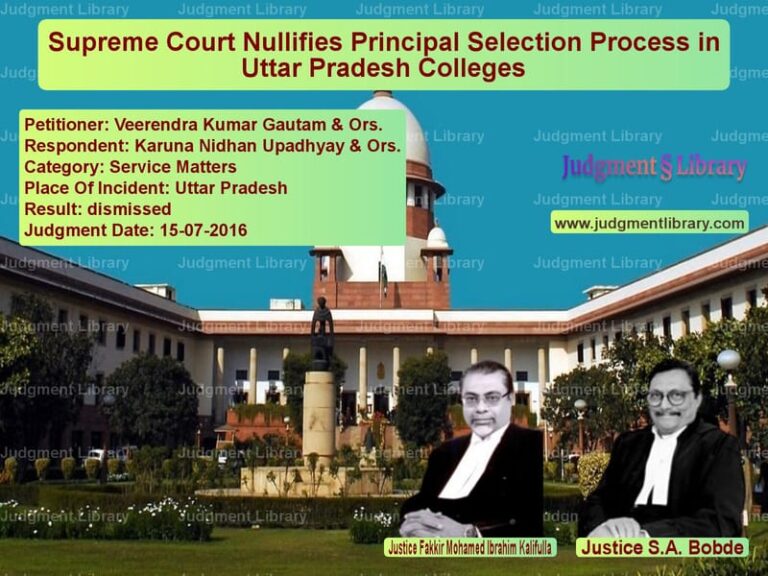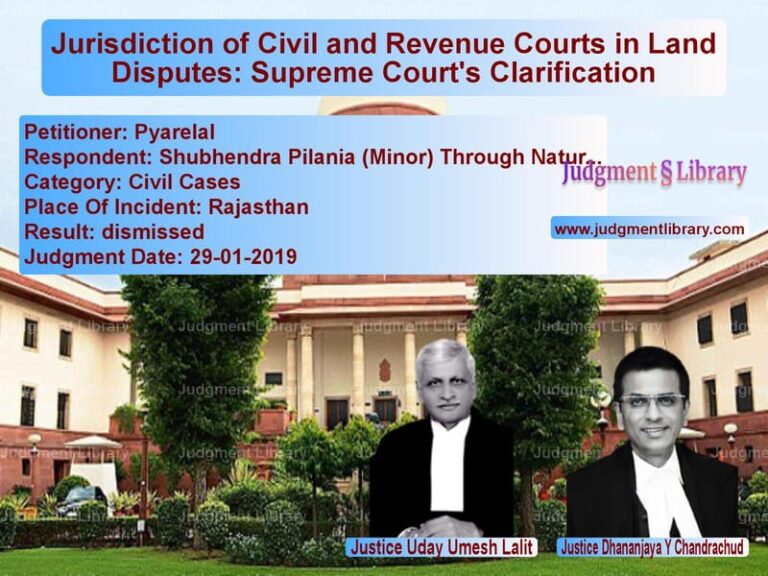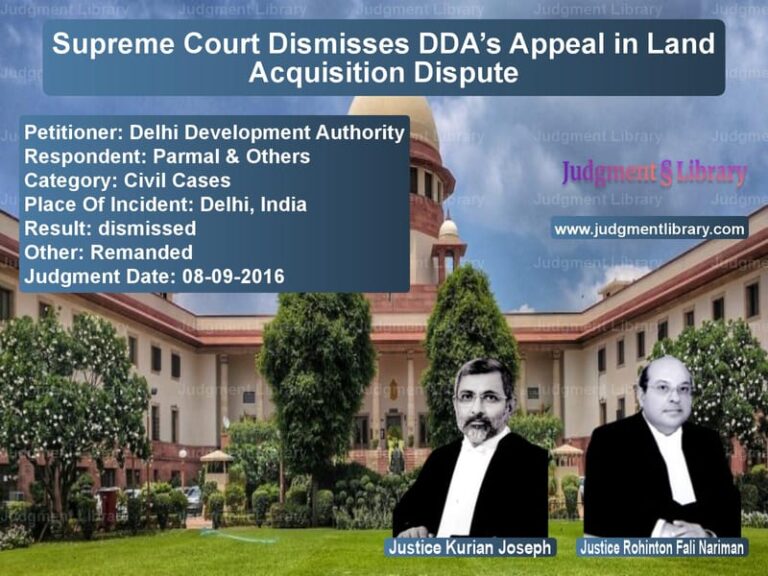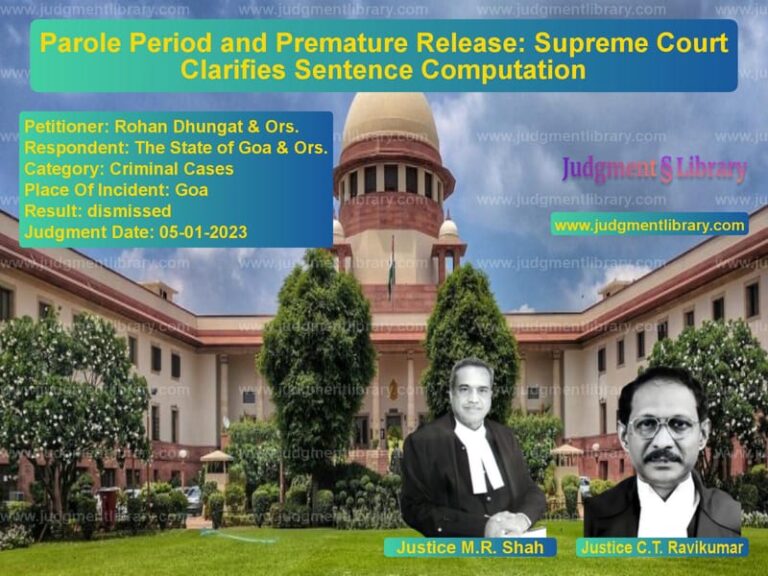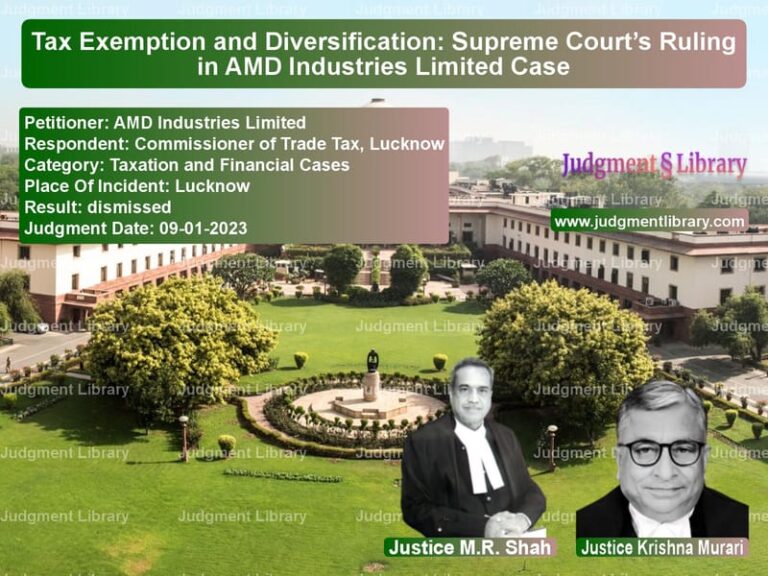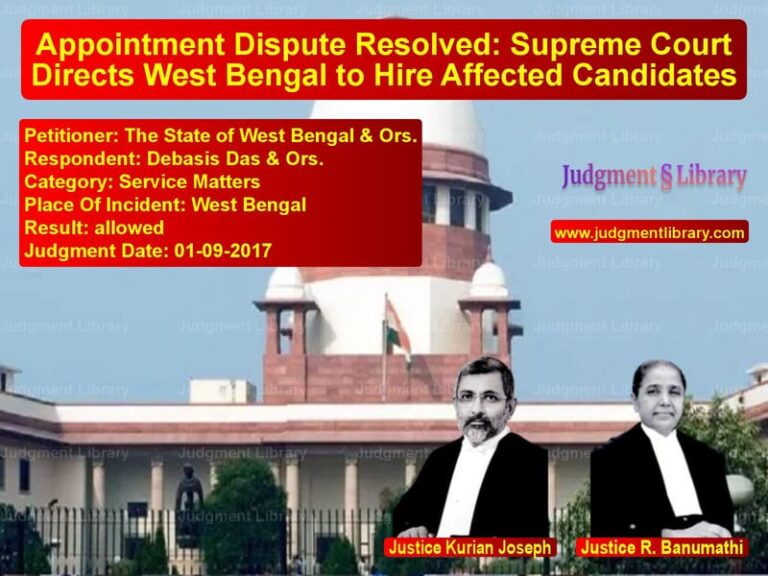Supreme Court Ruling on TET Qualification and Reservation Policy in Teacher Recruitment
The case of Vikas Sankhala & Ors. vs. Vikas Kumar Agarwal & Ors. is a landmark judgment concerning the eligibility criteria for teacher recruitment under the Right of Children to Free and Compulsory Education Act, 2009 (RTE Act) and the role of the National Council for Teacher Education (NCTE) in setting qualifications. The Supreme Court had to determine whether the relaxation in TET (Teacher Eligibility Test) marks granted by the Rajasthan government to reserved category candidates was legally valid.
Background of the Case
The appellants, candidates from the General category, challenged the Rajasthan government’s policy that allowed reserved category candidates to qualify TET with lower marks. The policy granted relaxation ranging from 10% to 20% for different reserved groups. The recruitment was based on TET scores, and the government also permitted migration of reserved category candidates to the general category if they scored higher than the last general category candidate.
The Rajasthan High Court ruled against the government’s relaxation policy, leading to an appeal before the Supreme Court.
Legal Issues Raised
- Whether the Rajasthan government’s relaxation of TET passing marks for reserved categories was valid.
- Whether the NCTE guidelines permitted such relaxation.
- Whether reserved category candidates who availed relaxation could migrate to the general category.
Arguments by the Appellants (General Category Candidates)
The General category candidates contended:
- The Rajasthan government’s relaxation policy lacked an “extant reservation policy” and was therefore invalid.
- The NCTE had set a 60% passing mark for TET, and the relaxation policy diluted merit-based recruitment.
- Migration of reserved candidates to the general category was unfair as they had availed relaxation in TET marks.
- The selection process should be redone to exclude those who qualified based on relaxed marks.
Arguments by the Respondents (Reserved Category Candidates & State of Rajasthan)
The Rajasthan government and reserved category candidates argued:
- The government had the power to set relaxation policies to promote affirmative action.
- Relaxation in TET marks was permissible under NCTE guidelines.
- Reserved category candidates should be allowed to migrate to the general category based on merit.
- The recruitment process was fair, and appointments had already been made.
Supreme Court’s Judgment
The Supreme Court ruled in favor of the reserved category candidates and the Rajasthan government, overturning the High Court’s decision. The key findings were:
1. Validity of Rajasthan Government’s Relaxation Policy
The Court held that the Rajasthan government had the authority to set relaxation criteria. It ruled:
“The phrase ‘extant reservation policy’ in NCTE guidelines does not mean that a pre-existing policy is required. The State has the power to introduce a policy that ensures equal opportunities for weaker sections.”
2. No Restriction on Relaxation of TET Marks
The Court rejected the argument that NCTE guidelines prevented states from granting relaxation in TET marks:
“NCTE guidelines allow states to provide concessions to reserved categories. The Rajasthan government’s policy is consistent with constitutional principles of affirmative action.”
3. Migration to General Category
The Court ruled that reserved category candidates could migrate to the general category if they scored higher than the last selected general category candidate, provided they did not avail additional concessions beyond TET relaxation:
“A reserved category candidate who has scored higher than the last general category candidate cannot be denied migration to the general category.”
4. Recruitment Process and Appointments Upheld
The Court upheld the recruitment process and allowed the appointments to stand:
“Thousands of teachers have already been appointed. Undoing the process would disrupt the education system and create administrative difficulties.”
Key Takeaways
- States can provide relaxation in TET marks. The ruling confirms that state governments can set relaxation policies under their reservation framework.
- Migration to general category is allowed. Reserved category candidates can be placed in the general category if they score higher than the last selected general candidate.
- The selection process was upheld. The Supreme Court refused to cancel appointments made based on the Rajasthan government’s policy.
- Affirmative action in teacher recruitment is valid. The judgment reinforces the legitimacy of policies designed to uplift marginalized communities in public employment.
Conclusion
The Supreme Court’s ruling in Vikas Sankhala vs. Vikas Kumar Agarwal is a landmark decision affirming the validity of reservation policies in teacher recruitment. It establishes that state governments have the authority to set relaxation standards in TET and that reserved category candidates can migrate to the general category based on merit. The judgment ensures fairness in recruitment while upholding the principles of social justice enshrined in the Constitution.
Don’t miss out on the full details! Download the complete judgment in PDF format below and gain valuable insights instantly!
Download Judgment: Vikas Sankhala & Ors vs Vikas Kumar Agarwal Supreme Court of India Judgment Dated 18-10-2016.pdf
Direct Downlaod Judgment: Direct downlaod this Judgment
See all petitions in Recruitment Policies
See all petitions in Public Sector Employees
See all petitions in Employment Disputes
See all petitions in Judgment by A.K. Sikri
See all petitions in Judgment by R K Agrawal
See all petitions in allowed
See all petitions in supreme court of India judgments October 2016
See all petitions in 2016 judgments
See all posts in Service Matters Category
See all allowed petitions in Service Matters Category
See all Dismissed petitions in Service Matters Category
See all partially allowed petitions in Service Matters Category


